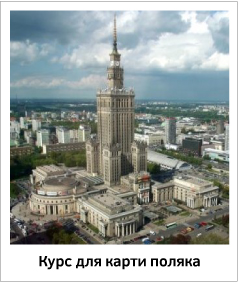TED Presentation: Teachers Need Real Feedback
|
Watch the presentation Download the handout (pdf) Read the script (pdf) |
| Until recently, many teachers only got one word of feedback a year: "satisfactory". And with no feedback, no coaching, there's just no way to improve. Bill Gates suggests that even great teachers can get better with smart feedback — and lays out a program from his foundation to bring it to every classroom. |
Before watching
- How would you define the word "feedback"?
- Do you think we all need feedback? When? Why? From whom?
- How do the evaluation and feedback differ? How does feedback help us develop?
While watching
1. Explain the meanings of the words / phrases.

| 1. blow away | 3. put sth at risk |
| 2. revamp | 4. make extraordinary gains |
2. Answer the following questions.
- Our foundation has been working with 3,000 teachers in districts across the country on a project called (...)
- What are the observers responsible for?
- What are the main outcomes of the project?
First, the teachers who did well on these observations (...)
And second, teachers in the program told us that these videos and these surveys from the students (...)
And second, teachers in the program told us that these videos and these surveys from the students (...)
3. Fill in the gaps with the missing information.
 I think what video offers for us is ..... (1). You can't really dispute what you see on the video, and there is a lot to be learned from that, and there are a lot of ways that we can grow as a profession when we actually get to see this. I just have ..... (2) and a little ..... (3) and invested in this tiny little wide-angle lens. At the beginning of class, I just ..... (4) it in the back of the classroom. It's not a perfect shot. It doesn't catch every little thing that's going on. But I can hear the sound. I can see a lot. And I'm able to learn a lot from it. So it really has been a simple but powerful tool in my own ..... (5).
I think what video offers for us is ..... (1). You can't really dispute what you see on the video, and there is a lot to be learned from that, and there are a lot of ways that we can grow as a profession when we actually get to see this. I just have ..... (2) and a little ..... (3) and invested in this tiny little wide-angle lens. At the beginning of class, I just ..... (4) it in the back of the classroom. It's not a perfect shot. It doesn't catch every little thing that's going on. But I can hear the sound. I can see a lot. And I'm able to learn a lot from it. So it really has been a simple but powerful tool in my own ..... (5). |
Once I'm finished taping, then I put it in my computer, and then I'll scan it and ..... (6). If I don't write things down, I don't remember them. So having the notes is a part of my thinking process, and I discover what I'm seeing as I'm writing. I really have used it for my own ..... (7) and my own personal reflection on teaching strategy and methodology and classroom management, and just all of those different facets of the classroom. I'm glad that we've actually done the process before so we can kind of compare what works, what doesn't. I think that video exposes so much of what's ..... (8) to us as teachers in ways that help us learn and help us understand, and then help our broader communities understand what this complex work is really all about. I think it is a way to ..... (9) and illustrate things that we cannot ..... (10) in a lesson plan, things you cannot convey in a standard, things that you cannot even sometimes convey in a book of pedagogy. |

4. Match the halves of the sentences.
| 1. Diagnosing areas where a teacher needs to improve is only half the battle. We also have to give them the tools they need to act on the diagnosis. If you learn that you need to improve the way you teach fractions, | a. a lot of them will be eager to participate. |
| 2. That's understandable, but our experience with MET suggests that if teachers manage the process, if they collect video in their own classrooms, and they pick the lessons they want to submit, | b. Now that's a big number, but to put it in perspective, it's less than two percent of what we spend every year on teacher salaries. |
| 3. Our foundation estimates that it could cost up to five billion dollars. | c. and have a chance to live out their dreams. |
| 4. We would finally have a way to give them feedback, | d. you should be able to watch a video of the best person in the world teaching fractions. |
| 5. It would put us on a path to making sure all our students get a great education, find a career that's fulfilling and rewarding, | e. as well as the means to act on it. |







